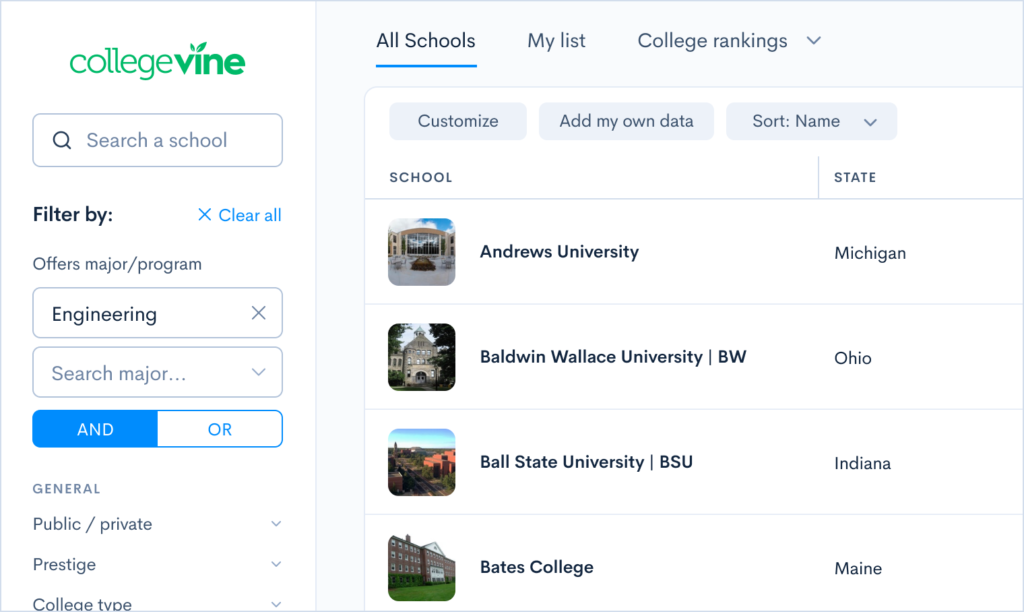How to Pick a College Major: 6 Key Questions to Ask
Some students apply to college with their major and career path in mind, while others are still trying to figure that out. Either way is fine! Many colleges usually allow you to apply “Undecided,” but with the expectation that you’ll declare a major by the end of sophomore year. College provides the perfect opportunity for students to explore their intellectual curiosities. Even if you know your intended major now, you may change your mind during your college career. As you explore your various major and career options, here are some guiding questions to help you figure out which major you should pursue. You want your major to be something you enjoy and are good at. So think: have you ever noticed yourself doing better in certain school subjects over others? Are there certain classes or activities that you’ve always gotten particularly excited about? If there are, try to find a common theme amongst them and see if it could translate to a college major. For example, if you find yourself gravitating towards extracurriculars like the debate team and mock trial while also enjoying classes like History and English, there’s a strong chance you would enjoy a Legal Studies or Political Science major. On the other hand, if you loved any projects where you got to create something and you loved classes like Physics, you might consider an Engineering major. Your choice of major should complement your academic and extracurricular profile. You will likely be asked to write a “Why This Major?” essay for college admissions, so it’s important that you have experiences to back up your interest in this subject. This is especially true if you’re applying to a specific college within a university, such as the school of engineering. Colleges will look closely at how you scored in your science-related courses and tests, as well as what related extracurriculars you pursued. Their goal is to determine whether you’d do well in the program and whether you have enough experience in the field to know that it’s something you would actually enjoy. So, use your past experiences as supporting points when deciding on a major. If you can say things like, “I know I will love X major because I already did Y and really enjoyed it,” you’re on the right path to choosing a major you’re sure to thrive in. Some students have a career goal, but don’t know which major will get them there. In this case, you should do some research and figure out what type of coursework or even post-bachelor’s schooling is required in your field of interest. For example, if you know you want to be a doctor, then medical school is definitely in your future. To get into medical school, you need to complete certain prerequisites in college, like physics, organic chemistry, and more. Because of these required courses, many pre-meds end up majoring in STEM out of convenience, but you can technically major in anything (check out our guide to the best majors for pre-meds to learn more). Alternatively, you can choose a major based on its popular career paths. Find out what kind of jobs people get after graduation and whether they interest you. These CollegeVine posts offer some insight in to the careers stemming from a few popular majors: 12 Well-Paying Jobs for Economics Majors Should You Major in Political Science? 12 Well-Paying Jobs for Math Majors Explore the course requirements for various majors at the school of your choice and see which ones appeal to you. For instance, if you know you’re not good at writing and see that there are several Creative Writing and English courses required for a certain major, you can cross that one out. Alternatively, if you know that topics of wealth and money are intellectually stimulating for you, you might enjoy the courses in an Economics major. Here are some of the required courses for popular majors in colleges across the United States: This technique is a great way to get a glimpse into what you would be learning and see which curriculum excites you the most. It can also help you understand what classes you should be taking while you nail down your major. After all, most four-year colleges’ major requirements are based on a four-year completion timeline, so if you don’t narrow down a major until your second or third year, you might find yourself with some catching up to do in terms of coursework. The unfortunate truth is that some majors tend to lead to higher-paying jobs and career paths than others. For example, a teacher who majored in education is likely to have a smaller salary than a Wall Street analyst who majored in finance during the same year. So while we at CollegeVine encourage students to pursue majors that they are passionate about, every student should consider whether the career they plan to pursue will be worth the investment of their college education. This is a particularly important question for students who are taking out loans. Most loan programs require students to start paying the loan back plus interest once they graduate. This means that the job you get after college must pay not only for basic living expenses, but also loan payments. You need to carefully consider what kind of major and career path will get you the starting salary needed to make that happen. Every college is best known for specific majors and programs, and those renowned majors tend to be more competitive for admission than others. In some cases, students aren’t guaranteed admission to their preferred major, even if accepted to the university, due to the volume of demand for that particular major. UC Berkeley’s undergraduate Business major is one such program, where currently enrolled Berkeley students have to go through a separate, competitive application process during their second year to be considered for a Business major. You should consider whether you’re prepared for the rigors of a competitive major, and whether you have a good chance of being admitted to that major (if there’s a separate application process). On the flip side, you should not apply to college with a major you’re not interested in because it’s less competitive. Transferring into selective majors can be even harder than being admitted outright. Beyond that, if you put down a major that doesn’t match your profile, colleges may be confused by your application, and may reject you. At the end of the day, if you truly don’t know what major you want to pursue, you can absolutely apply as “Undecided.” In fact, it might be better to apply as “Undecided” and give yourself the option to explore several fields than choose a major and be stuck in those required courses. However, at the very least, we recommend that you have a general idea of what you might be interested in. This will help inform any “Why This College?” application essays you may need to write, and it’ll also help narrow down which subjects you explore in your first few semesters while you decide. As a general rule, you should aim to make your decision within your first or second year of college. The more time you spend deciding on a major, the less time you will have to actually pursue it. If you decide to apply to college as an “Undecided” major, look for schools that will allow you the freedom and flexibility to explore a wide breadth of courses. We’ve narrowed down 10 Great Colleges For Undecided Majors to help with your decision. We’ve also made it easy to understand your chances of acceptance to the schools you decide to apply to as “Undecided.” Our Admissions Chances Calculator will let you know how your academic and extracurricular profile stacks up against other applicants’. We’ll also give you tips on improving the rest of your profile, including grades and extracurriculars. You can also search for schools based on preferences like location, major, cost, and more. Give it a try to get a jumpstart on your college strategy. What’s Covered:
Questions to Ask When Choosing A Major
1. What are your strengths and passions?
2. What do you have experience in?
3. What Are Your Career Goals?

4. What Are the Required Classes?
5. What is the Return on Investment (ROI)?
6. How Competitive Is The Major?
Should You Apply as “Undecided”?


